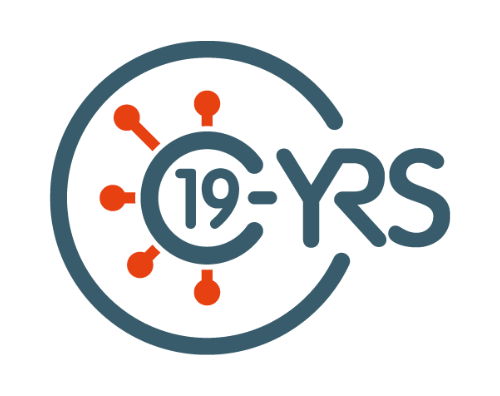Published on the 1st December 2022
Kirstie’s Story

Kirstie was left with “debilitating and frustrating” symptoms when she fell ill with long Covid. One of the worst problems was brain fog. Finding words suddenly became an issue and she struggled to concentrate or remember things. Even cooking dinner for her family – a simple task she’d previously done without too much thought – became a challenge. Juggling the different timings and pans was just too much for her brain to cope with.
‘I was gasping for breath’
Kirstie, who works as a radiographer at Raigmore Hospital, had Covid for the first time on Christmas Day and and has not fully returned to her normal self since. But she has been getting help from staff working in the long Covid service at NHS Highland which, she says, has made a “huge difference” to her life. It’s the first health board in Scotland to use the C19-YRS (York Rehab Scale) app which helps staff triage patients and can direct them to lots of self-management resources. After catching Covid, the 39-year-old was not fit enough to go back to work and was referred to the service in March.

“My heart rate was up to 130bpm just walking up one flight of stairs and I was gasping for breath,” she explains. “I was starting to get problems with chest pain and chest tightness if I was doing anything that got me really out of breath. “I had tingling in my fingers and also a shake, a tremor, and the fatigue was just awful.”
New long Covid service: ‘Things can get better
But Kirstie, of Inverness, was determined to get better. She was taught coping mechanisms at the long Covid service along with techniques to improve her breathing. She learned that it was important not to push herself and do too much.

Staff at the service also explained that both her brain and body needed to get enough proper rest. It’s been a long journey for the mum-of-two but, with the help of the service, she now feels 90% better. After going back to work full-time, she’s now studying for a promotion to be an advanced radiographic practitioner. “Things can get better,” she says. “It does take a long time but there is help out there, there are resources and techniques to help you improve your symptoms. “I do feel like I’m one of the lucky ones because there are some people who got Covid two-and-a-half years ago and they’re still struggling.”
‘I smelled of cigarette smoke – even though no-one smokes in our home’
Roselyn’s Story
Physiotherapist Roselyn Celestial has also benefited from the new long Covid service after experiencing a “scary” battle with long Covid. “I had a continuous cough,” she says. “It did not stop and it kept me awake at night. “Then I started to feel it was hard to breathe. “And the weird thing was that I felt I smelled of cigarette smoke and there is no-one who smokes at home.”

The mum-of-two underwent tests booked in by her GP to see why she had problems with breathing after she fell ill last September but everything came back clear. “I had to look for an answer because I was struggling,” she says. “And it was scary, because there were times where I felt that I had to call an ambulance because I could not breathe.” She eventually got advice from the British Lung Foundation and booked another appointment with a different GP.
‘I need a stick now for stability’
Roselyn was then referred to the new NHS Highland service for long Covid sufferers. She was taught breathing techniques and staff showed her ways to manage her energy levels better. Learning about how much energy the brain uses to carry out certain tasks, or even just reading, also helped.

She made small changes to her life and now listens to audiobooks instead. The Inverness mum was not able to work for several months until her symptoms stabilised enough for her to go back on a phased return. Even now she still has aches and pains in her body and struggles with fatigue but she has strategies in place to cope. “Before I had long Covid I used to walk my dog no problem and I would enjoy that,” she says. “Now I cannot do that and it’s frustrating. “Sometimes my dog looks at me as if to say ‘why are you not walking me?’ “My legs can get so fatigued and my knees feel like they’re going to buckle. I need a stick now for stability because of my leg pain.”
How does the new long Covid app work?
NHS Highland received funding this year to recruit an occupational therapist and physiotherapist to the new long Covid service. Care has been provided to NHS workers this year but a service has just launched for the public now that the new team is in post. Patients will be referred by their GPs and given access to the C19-YRS app which helps to assess and continually monitor their condition. Occupational therapist Vivian Scott has been using tools from the app with NHS workers suffering from long Covid who have been using the service this year.

“It is a really good tool,” she says. “And it has a wide range of educational resources that people will be able to access as well,” Vivian explains that patients experiencing the condition can be suffering from a range of more than 200 symptoms. Common symptoms include difficulties with brain fog, breathlessness and fatigue. “The recovery is really about people doing things differently,” she says. “Long Covid is a new medical condition and there’s no medical treatment so a lot of it is based on advice and technique.”
